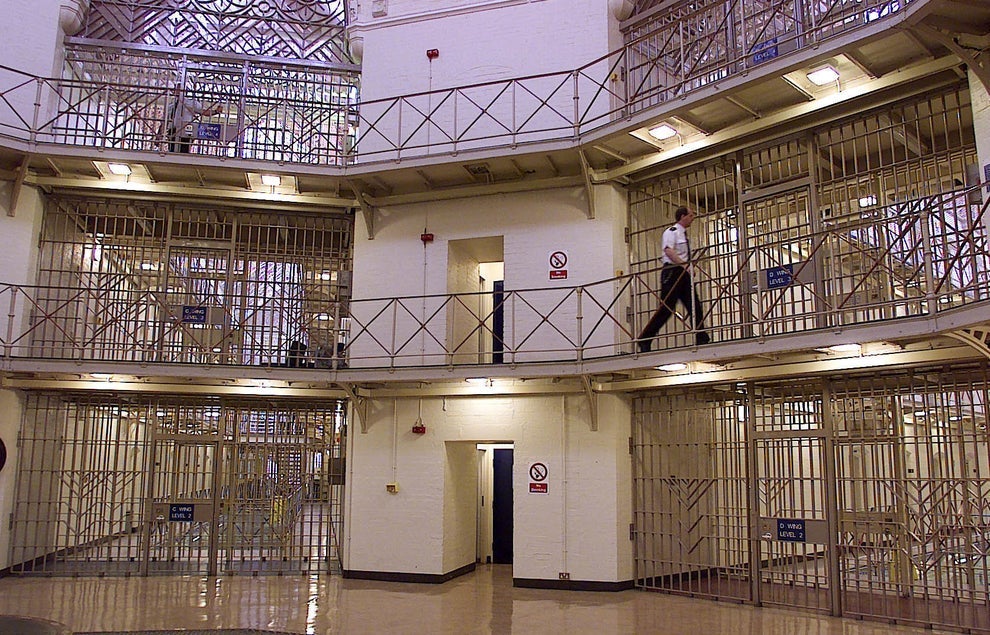New Covid strain could see ‘heavy toll’ of infections in jails, warns former prisons watchdog
Ministers urged to ‘act fast’ and introduce new early release scheme or see high death rates across jails

The new coronavirus strain could lead to a “heavy toll” of infections in jails across England and Wales, the former prisons watchdog has warned.
Nick Hardwick, who served as the chief inspector of prisons from 2010 until 2016, said it was vital that ministers got “a real grip” on the potential spread of the virus in jails or risk preventable deaths.
The former watchdog chief called for a release scheme to be introduced so that vulnerable inmates are removed from jails, and for it to be less “bureaucratic” than the scheme brought in during the first wave of the pandemic.
Large parts of the UK were plunged into lockdown on Saturday in light of a new variant of coronavirus that is up to 70 per cent more transmissible than the original.
Prof Hardwick told The Independent this was a significant risk for prisons, where people are held in close proximity and the population is disproportionately made up of high-risk individuals, and urged the government to “act fast” to protect inmates, prison staff and the wider public.
He said that although prisoners were not high on most people’s agendas, he was “very concerned” that the new strain of the virus would mean staff bringing it into jails and lead to a “heavy toll” unless a stricter regime was introduced.
During the first lockdown, prisons across England and Wales adopted strict regimes whereby social visits and education were cancelled and inmates were locked in their cells for most of the time, allowed out only to access to showers and phones – if they did not have one in their cells – and to exercise.
The prison service also introduced an early release scheme, which was set to let out up to 4,000 prisoners in a bid to prevent coronavirus from spreading but only ended up releasing several hundred.
Twenty-seven prisoners died during the first wave of coronavirus, and 22 have so far lost their lives to the virus since the second wave started – with 17 of those occurring since the middle of November.
Prof Hardwick said the stricter regime should not mean prisoners spending 23 hours a day in their cells, but that they should remain in “small groups” to minimise that contact, with a testing system in place that reduces chances of the virus both entering and leaving jails.
Calling for a new early release scheme, he said: “They need to continue to release the population, and the way to do that is an early release scheme. But they’ve got to give more discretion to governors to do it. The problem with the last one is it was too bureaucratic to manage.”
He added: “In the first wave, prisons did better than people expected. There were far fewer deaths and infections than anticipated, and in fact even the consequences of the very severe lockdown were not as bad as predicted.
“The danger is that people have relaxed and they won’t react fast enough to what’s happening now.”
Richard Garside, director of the Centre for Crime and Justice Studies, echoed Prof Hardwick’s concerns, but stressed that the response that “got the prison service through” the first strain of the virus “may not be enough”.
“On the basis of this more contagious strain, the implication would be that we’re probably going to see more infections and potentially more deaths – even if the prison service does the same again,” he said.
“I do think they should be looking at a managed release programme so they can get as many people out of harm’s way as possible. The risk if they don’t is more deaths and a restricted regime for several more months at least.”
He said ministers should also consider placing prisoners and prison staff high on the list for vaccinations, adding: “Matt Hancock was said there’s 350,000 people have been vaccinated in the last week or so. On that basis they could vaccinate every prisoner and prison staff in a week.
“This is something that is eminently deliverable. The only thing getting in the way of it being delivered is politics.”
Prison visits are currently suspended in tier 3 and 4 areas, except on exceptional compassionate grounds, and social distancing is maintained in prisons as far as possible, the Ministry of Justice (MoJ) said.
It said the prison service also quarantines new arrivals, isolates the symptomatic and shields the vulnerable, and that there is routine testing for all prisoner-facing staff in all prisons. Testing of prisoners on reception and transfer is also being rolled out across the estate.
A Prison Service spokesperson said: “Our priority is to limit the spread of the virus and to protect the lives of those who live and work in our prisons and this is based on the very latest public health advice.
“Robust safeguards – including shielding the vulnerable, rolling out mass testing and introducing safe regimes – have undoubtedly prevented many deaths and will continue to limit transmission in this uniquely challenging environment.”
Join our commenting forum
Join thought-provoking conversations, follow other Independent readers and see their replies
Comments



Bookmark popover
Removed from bookmarks